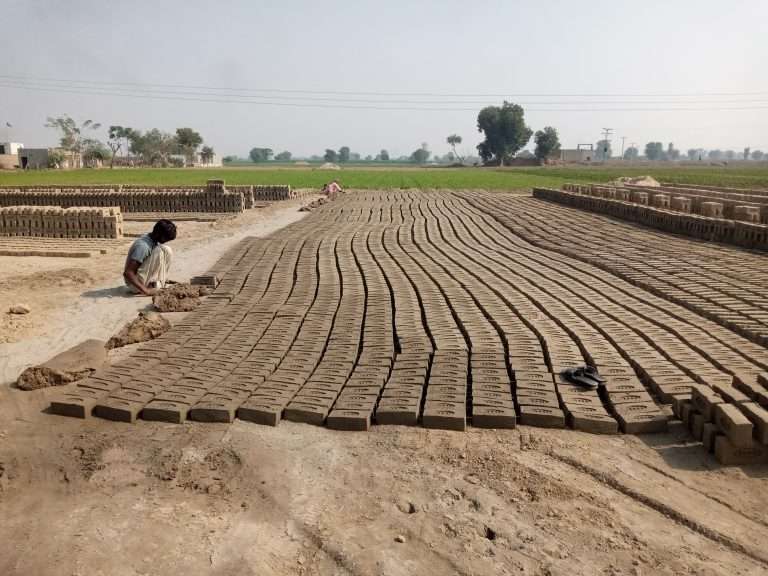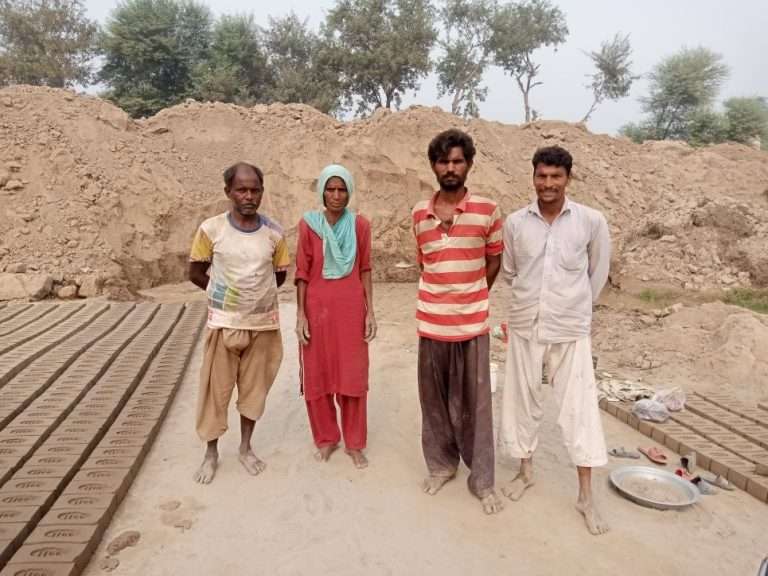Redemption and Rehabilitation of Brick Kiln Bonded Families
NOAD in collaboration with Pakistan Partnership Initiative (PPI), Islamabad is redeeming the brick-kiln bonded (modern day salve) families by paying off their debts. After rescuing, the families are shifted at new places/ rented house and provided business material according to their choices and start their businesses in the mainstream market. NOAD so far, has rescued 85 families while applications of 120 kiln families are in pipelines.
In Pakistan, brickmaking is one of the most important building materials industries employing about 15 million people directly and indirectly. However, an estimated three million children also work for up to 14 hours a day, six days a week in brickmaking kilns, lacking basic rights and access to social security. Although bonded labor was outlawed in Pakistan decades ago, the practice has continued and has been expanded during and after the COVID-19 economic crisis.
Brick kiln workers are some of the most vulnerable and marginalized groups in Pakistan. Most of them are unskilled labourers who work in harsh and dangerous conditions, with little or no access to basic amenities like healthcare, education, and sanitation.
They work long hours, often up to 12 hours a day, and are paid very low wages, as little as Rs. 700 per day. Many of them live on-site in temporary shelters, which lack proper ventilation and are prone to fires and accidents.
Vulnerable workers become bonded laborers by taking loans from their employer and being forced to work to repay the debt. Because their wages are so low, workers rarely make enough to subsist much less clear the loan, and a crisis, such as an injury or health issue, can contribute to vicious cycle of debt. Meanwhile, entire families, including children, may be pressed into work





